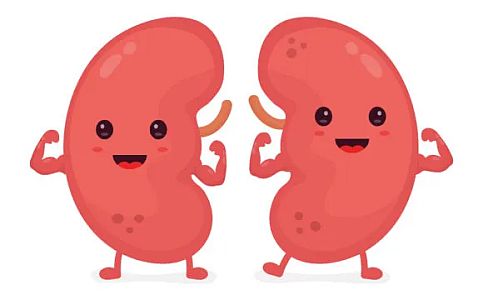Urinary infections are a type of disease that occur in both men and women. It is a very annoying infection that needs immediate treatment at the time your symptoms begin to appear since if we let it pass, this infection can have serious consequences. In the case of one of the most common health problems, it is necessary to know its causes, treatment and possible ways to prevent it.
We could say that the main cause of urinary tract infections is due to those bacteria that live in the large intestine. In men, more specifically, the prostate gland produces secretions that retard the growth of these bacteria, although in spite of this they are at risk of infections in the same way.
At the time that the bacteria rise to the kidneys these infections are complicated, since despite being less frequent, it is much more serious than a normal infection such as cystitis, so you need a more severe and controlled treatment.
Some of the symptoms that manifest and which are an alert that we should see urologist in Palam immediately would be the following:
- Need to urinate constantly and annoying despite not wanting to.
- Urine with a strong smell or even bleeding.
- High temperature and chills.
- Burning sensation when urinating.
Apart from the symptoms, how can I know if it is an infection or not?
Through a good diagnosis we can know what it is. This is based on the medical history and an examination of the patient. Some of the radiological studies that are carried out are the radiography of the abdomen and an ultrasound, in addition to the current analyzes and a urine culture for the correct collection of urine, explains urologist in Uttam Nagar.
What is the most appropriate treatment?
Depending on the severity of the infection, one treatment or another will be applied. If the infection is a common cystitis, the treatment will be antibiotics for two or three days. On the other hand, if the infection is more serious and has reached the kidneys, there will be the possibility of being admitted for a few days to keep a thorough check of the patient and to be able to give him the appropriate medication until the infection disappears from the kidneys and prostate, says urologist in Janakpuri.
Urinary infections do not go away overnight. It is a process that takes a few days and requires an adequate recovery if we want the discomfort to disappear completely. In the case of reappearing after recovery, it will be convenient to perform tests to diagnose the occurrence of diseases that cause this infection.
How does this problem affect children?
These types of infections are very common in children. This may be due to various functional problems. In some cases the infections go unnoticed since children do not know what the symptoms are.
These are usually seen manifested in behaviors such as stop eating, high temperature, or irritability.
It is essential to stop this type of infection as soon as possible, as this can lead to more serious problems that may affect the health of the little ones in the future, explains urologist in Dwarka.
What are the main causes?
Some of the factors that can trigger a urinary infection are:
- Any alteration of the urinary system, such as a stone.
- Presence of a catheter or catheter.
- Occasionally, sexual activity can lead to the introduction of bacteria into the bladder, increasing the risk of having cystitis.
- Alterations in the bladder.
- Reflux vesicoureteral.
- Genetic factors. Also diabetes, for example, or the elderly and with lower defenses.
How can I prevent this type of urinary infections?
There are some very simple actions to perform, but we must take into account because if we do them in the right way we can save many health problems. Some of them are:
- Do not delay the time to go to the bathroom.
- It is important to completely empty the bladder.
- Drinking a lot of water throughout the day cleanses our body.
- Go to the bathroom after performing the sexual act.
If you have any doubts or symptoms, it is best to see the urologist in Hari Nagar who is aware of proper treatment.
If you do not see any type of infection through a urine test, go to your urologist in West Delhi to perform other diagnoses and the corresponding tests.








